Becoming a psychologist requires not only specialized education and training, but also the ability to communicate that education to others in an engaging and persuasive way. When you visit any job posting site, you will see the same key words appear again and again: resume, cover letter, LinkedIn profile, networking, references. These are all part of finding a job in any field—but especially when trying to break into the world of psychology and its related fields. Fortunately for people looking to work as a psychologist, there are plenty of online resources to help you land that perfect job. A well-written resume is one of those important tools. Your resume should be tailored to each specific job you’re applying for (more on that later). However, it should also follow universal best practices so that even if your specific application goes unread by hiring managers (which unfortunately happens), it doesn’t go unread by other potential employers or human resource professionals who may be reading your resume as part of a larger applicant pool.
Psychologist Resume Example

Download This Psychologist Resume as PDF
Psychological Assistant Resume Example
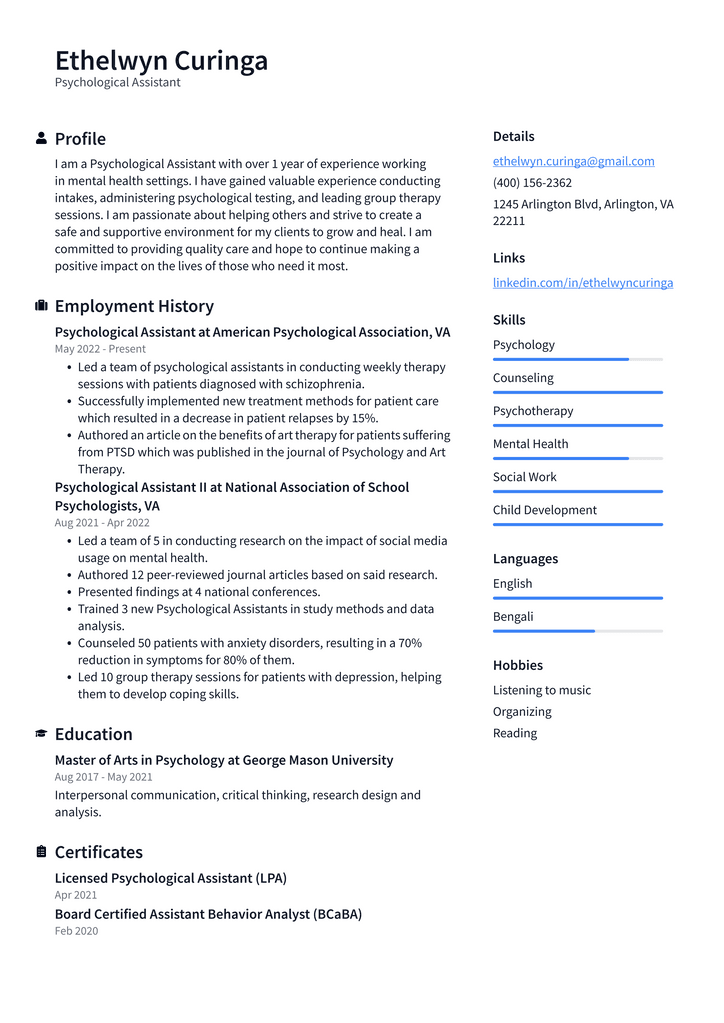
Download This Psychological Assistant Resume as PDF
Psychometrist Resume Example
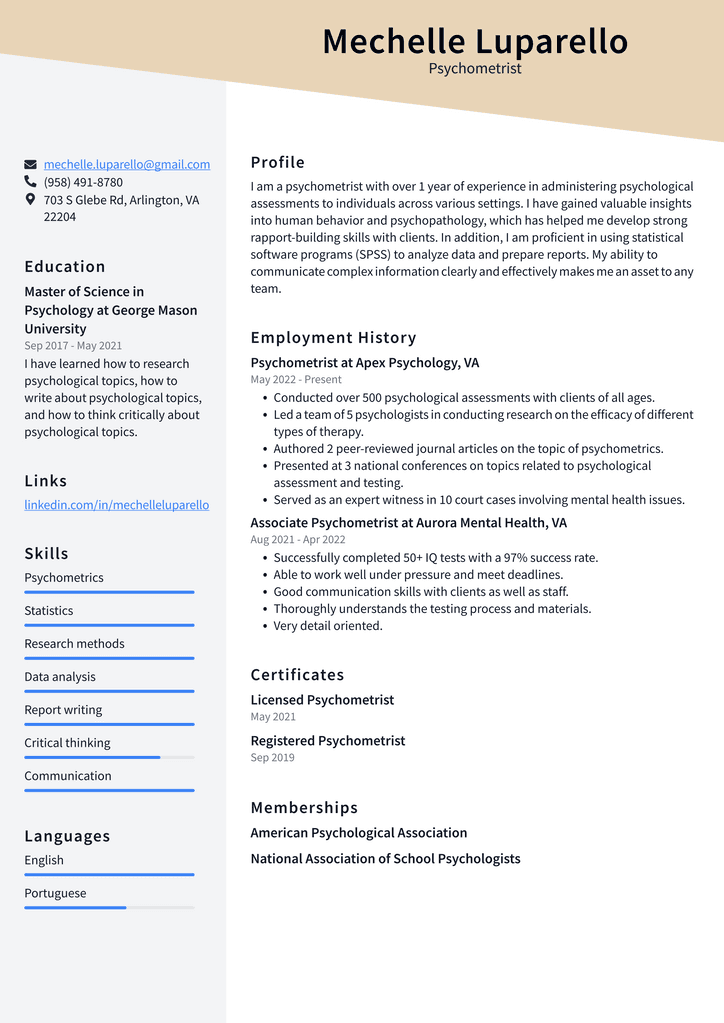
Download This Psychometrist Resume as PDF
Psychological Technician Resume Example
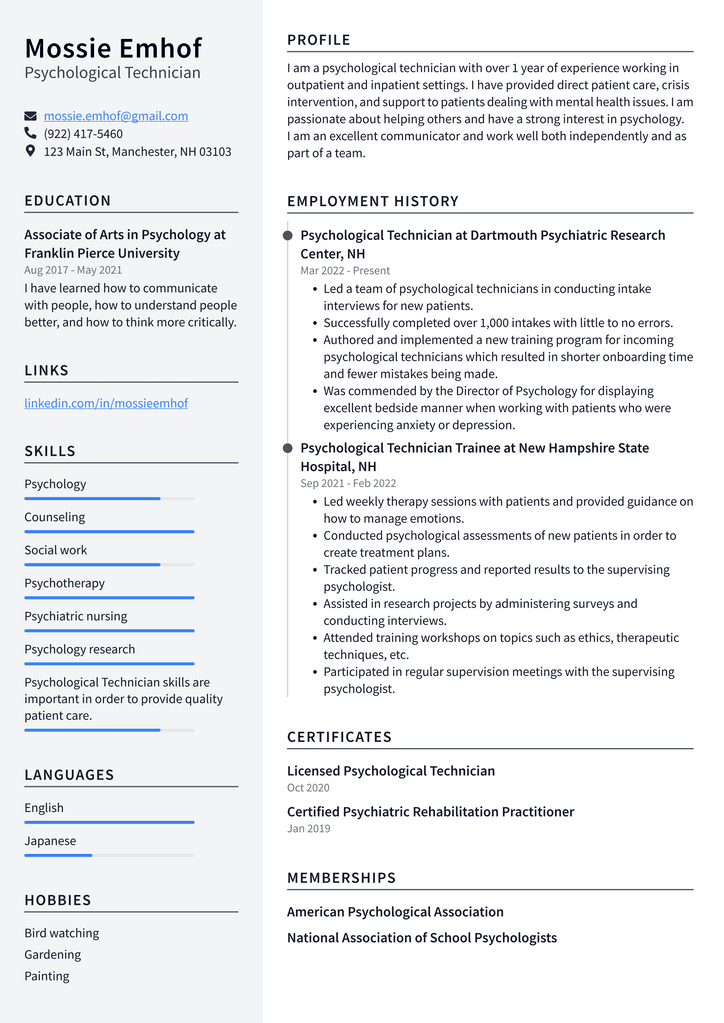
Download This Psychological Technician Resume as PDF
Counseling Psychologist Resume Example
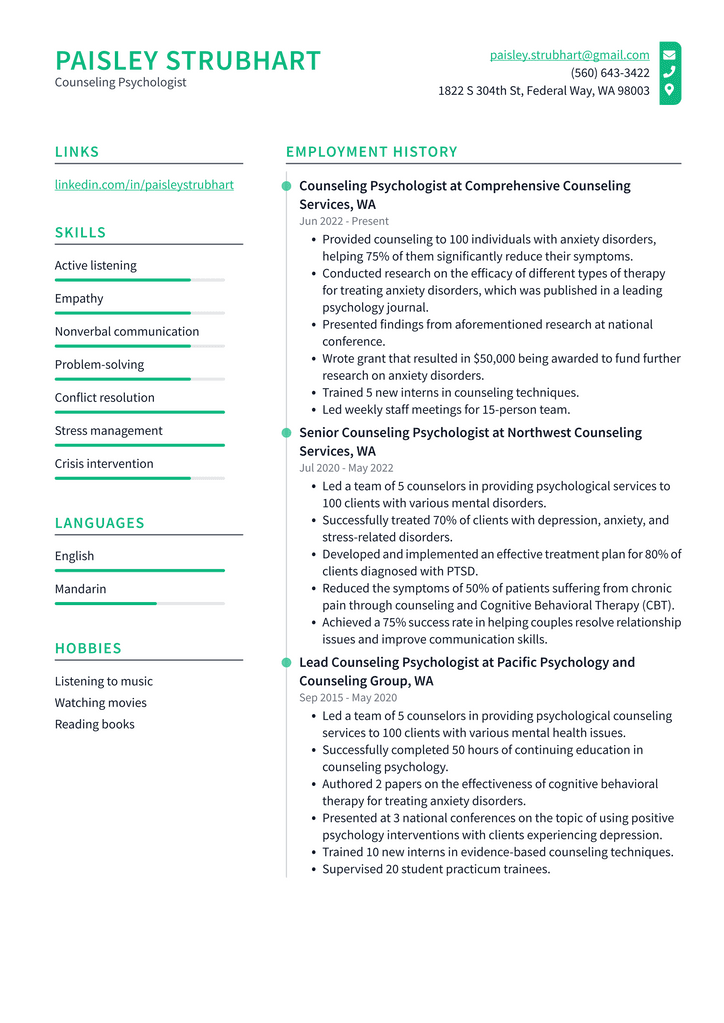
Download This Counseling Psychologist Resume as PDF
Psychological Associate Resume Example
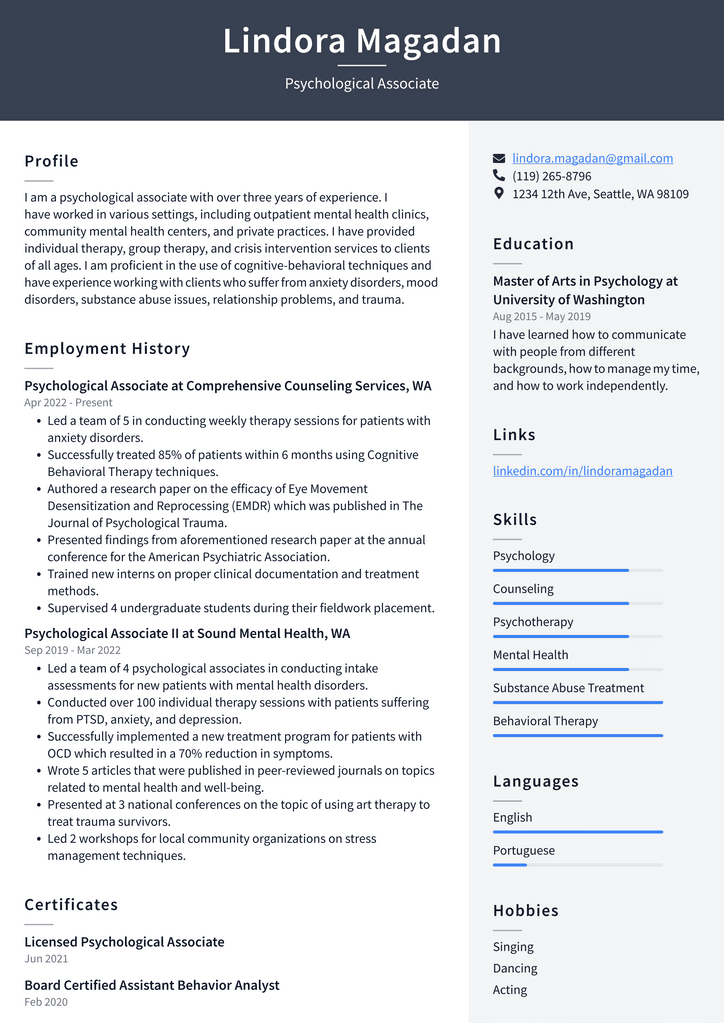
Download This Psychological Associate Resume as PDF
Psychiatrist Resume Example
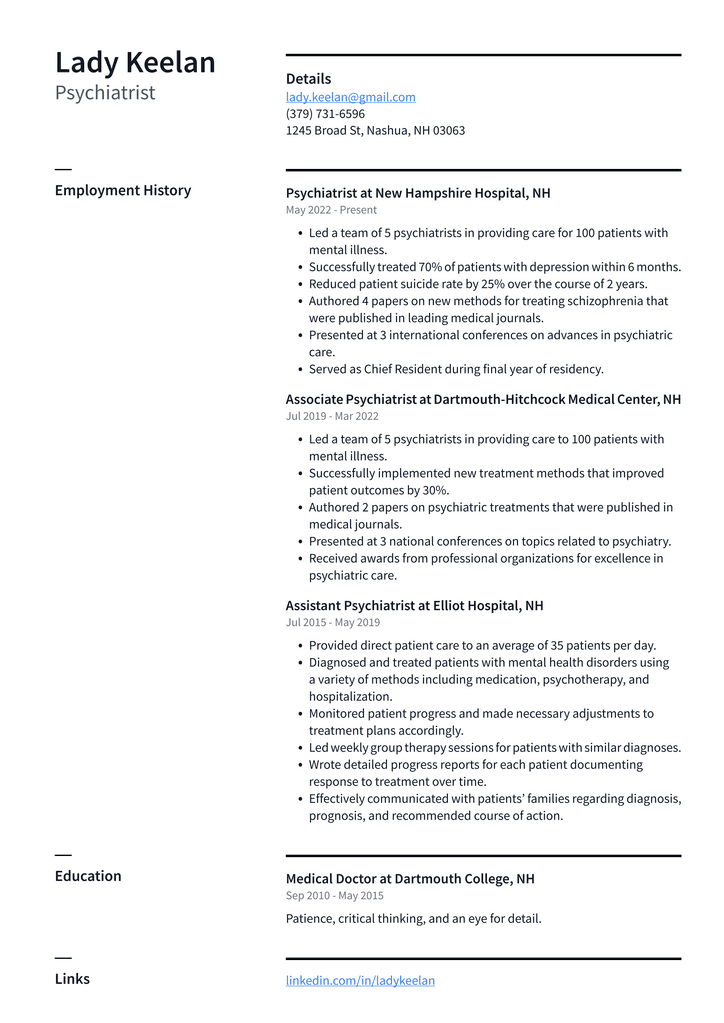
Download This Psychiatrist Resume as PDF
Why is a Resume Important for Psychologists?
One of the first things potential employers will see about you is your resume. This document is your first impression, so it’s important to make sure it’s as strong as possible. A resume can help you in two key areas: getting attention and securing an interview. A well-written resume will get attention from hiring managers who are looking through hundreds of applications. Even if you don’t get the job, the employer will be more likely to remember you, which increases your chances of being selected for a future position. Additionally, a well-drafted resume can help you secure an interview. Having a strong resume lets employers know that you’re a serious candidate who knows what you’re doing. With a resume in hand, they’ll be more likely to ask you to come in for an interview.
What to Include in Your Resume
Skills and experiences: This is a great place to highlight projects or other experiences that are important but don’t necessarily have a place in the skills and experience section.
Work experience: Start with the most recent job first.
Awards: Include awards that are relevant to the work you do and that help differentiate you from other candidates. : Include awards that are relevant to the work you do and that help differentiate you from other candidates.
Education: Include your highest degree first followed by your other degrees. : Include your highest degree first followed by your other degrees.
Skills and experiences: This is a great place to highlight projects or other experiences that are important but don’t necessarily have a place in the skills and experience section. : This is a great place to highlight projects or other experiences that are important but don’t necessarily have a place in the skills and experience section.
Work experience: Start with the most recent job first. : Start with the most recent job first. Awards : Include awards that are relevant to the work you do and that help differentiate you from other candidates.
How to Format Your Resume
There are a few key things to keep in mind when formatting your resume. A resume should be easy to read and understand. It’s easy to get wrapped up in fancy fonts, layouts, and other design aesthetic details. But these can actually make it harder for recruiters and employers to quickly understand what you bring to the table. Follow these formatting best practices. Use an easy-to-read font : You should use a standard, easy-to-read font like Times New Roman or Arial. Avoid fancy fonts and designs that make your resume harder to read. : You should use a standard, easy-to-read font like Times New Roman or Arial. Avoid fancy fonts and designs that make your resume harder to read. Include a header with your contact information : Include a header at the top of the page with your contact information. This includes your name, phone number, email address, and social media information (if you choose to include it). : Include a header at the top of the page with your contact information. This includes your name, phone number, email address, and social media information (if you choose to include it). Use white paper : White paper is standard and looks more professional than colored paper. : White paper is standard and looks more professional than colored paper. Keep paragraphs short : Short paragraphs make the resume easier to read. One or two sentences per paragraph is a good rule of thumb. : Short paragraphs make the resume easier to read. One or two sentences per paragraph is a good rule of thumb. Include a short summary : A short summary of your value is a good idea and can help hiring managers decide if they want to read further.
Tips for Writing a Psychologist Resume
Here are a few more tips for writing a psychology resume. While these are general tips for writing a resume, they are important for making sure your psychology resume stands out from the competition. Keep it brief : Resumes should be one page long. Any longer, and your resume starts to look too long. : Resumes should be one page long. Any longer, and your resume starts to look too long. Make sure it’s up to date : Make sure all of your information is up to date and correct. It’s possible that an employer will ask you for an old resume and you don’t have one because it’s too old. If this is the case, you need to have a plan for handling this. : Make sure all of your information is up to date and correct. It’s possible that an employer will ask you for an old resume and you don’t have one because it’s too old. If this is the case, you need to have a plan for handling this. Get feedback : Get feedback from friends and family on your resume. Look for places where it can be improved, and use their feedback to make it stronger.
Conclusion
While there are no hard and fast rules for how to write a resume, there are best practices that can make your resume stand out from the competition. Education and experience are important, but so is formatting and presentation. With the tips and suggestions in this article, you can craft a resume that gets noticed and lands you an interview.